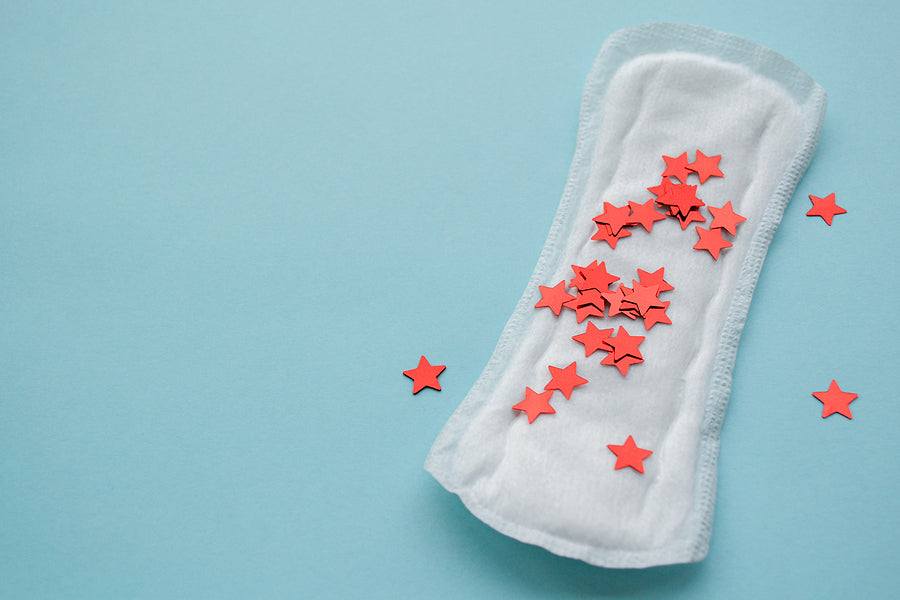Period Pain? Here Are Foods You Should Avoid Eating

Ever notice how a single snack or meal can make your period feel ten times worse? For many, cramps, bloating, and mood swings aren’t just minor annoyances—they can disrupt work, social life, and sleep.
While exercise, heat therapy, and proper rest can help, what you eat during your cycle plays an equally important role in how you feel. Certain foods can worsen inflammation, water retention, and hormone fluctuations, intensifying cramps, bloating, and fatigue. Even small dietary choices can noticeably affect your mood, energy, and overall comfort. Alongside choosing the right menstrual products—like organic feminine pads, which are gentle on the skin and reduce irritation—mindful nutrition is a powerful part of supporting your period and keeping discomfort at bay.
If you’ve ever noticed your symptoms spike after a specific snack or meal, you’re not imagining it. Understanding how different foods affect your cycle empowers you to make choices that reduce pain, ease bloating, and support emotional balance.
Let’s explore the foods to avoid during your period—and what you can swap them for instead.
Processed and Salty Foods
Craving chips or takeout? Unfortunately, salty foods are one of the biggest culprits behind bloating during your period. High sodium intake causes your body to retain water, which amplifies feelings of heaviness and swelling. Processed foods like frozen dinners, packaged snacks, and fast food are especially sneaky sources of sodium.
Instead: Choose whole foods and cook at home whenever possible. Season with herbs, spices, or a squeeze of lemon for flavor without the excess salt.
Sugary Treats
That mid-cycle craving for chocolate cake or candy might feel irresistible, but refined sugar can cause blood sugar spikes and crashes, leaving you feeling irritable and fatigued. High sugar intake may also increase inflammation, which can make cramps more painful.
Instead: Reach for naturally sweet alternatives like fruit, dates, or dark chocolate (70% or higher). These satisfy cravings while offering nutrients and antioxidants.
Caffeine Overload
A morning coffee or tea can be comforting, but too much caffeine during your period may worsen cramps. Caffeine narrows blood vessels, which can restrict blood flow to the uterus and intensify pain. It also acts as a diuretic, leading to dehydration and potentially worsening headaches.
Instead: Swap your second or third cup of coffee for herbal teas such as chamomile or ginger, both of which have soothing and anti-inflammatory properties.
Fatty and Fried Foods
Greasy foods—think burgers, fries, or fried chicken—are often high in saturated fats. These fats can trigger inflammation, which may exacerbate cramping and discomfort. They also slow digestion, which can worsen bloating.
Instead: Choose foods rich in healthy fats like avocado, nuts, chia seeds, or salmon. These provide omega-3 fatty acids, which actually help reduce inflammation.
Alcohol
A glass of wine may seem like a good way to relax, but alcohol is a common trigger for worsening period symptoms. It dehydrates the body, disrupts sleep, and can contribute to bloating. Alcohol also interferes with hormone regulation, which may heighten mood swings.
Instead: Opt for mocktails, sparkling water with fresh fruit, or calming herbal infusions.
Red Meat
While red meat is a good source of iron, it’s also high in prostaglandins—compounds that trigger uterine contractions. Elevated prostaglandins are linked to stronger cramps, which is the last thing you want during your period.
Instead: Look for plant-based sources of iron such as lentils, beans, spinach, or pumpkin seeds. Pair these with vitamin C-rich foods like oranges or bell peppers to boost iron absorption.
Dairy in Excess
Not everyone is sensitive to dairy, but for some people, high-fat dairy products can increase prostaglandin production and lead to more severe cramps. Milk, cheese, and cream may also cause bloating if you’re lactose intolerant.
Instead: Try plant-based alternatives such as almond, oat, or coconut milk, which are gentler on digestion.
Listening to Your Body
Everyone’s body reacts differently, and the key is to pay attention to your unique cycle. Keep a food diary to track which meals make your symptoms better—or worse. Over time, you’ll notice patterns that can help you make smarter food choices each month.
Supporting Your Cycle Holistically
Beyond steering clear of the foods to avoid during your period, nourishing your body with wholesome meals can support your energy levels and emotional well-being. Eating plenty of leafy greens, lean proteins, whole grains, and omega-3-rich foods creates a foundation for a smoother cycle. Pair that with hydration, gentle exercise, and mindful self-care, and you’ll notice a real difference.
And don’t forget, the products you use on your body matter too. Just as processed foods can irritate your system, conventional pads with chemicals and plastics can cause discomfort. Knowing which sanitary pads are safe to use is key—choosing organic feminine pads that are breathable, natural, and gentle on sensitive skin can ease irritation and support your overall well-being.
Final Thoughts
Period pain is a reality, but it doesn’t have to control your life. By steering clear of the foods to avoid during your period and making mindful swaps, you can reduce cramps, bloating, and mood swings significantly. Pair your new diet habits with gentle, sustainable period products designed to support your comfort.
Discover the difference with Peuriste’s organic pads—crafted with bamboo and corn fibers for unmatched softness, rapid absorption, and breathable comfort. Our pads are free from harmful chemicals, making them a safe choice for sensitive skin while also being eco-friendly. Choosing Peuriste means saying yes to better cycles, more comfort, and a healthier planet.
Let your period care be as mindful and natural as the lifestyle you’re working toward.
0 comments



